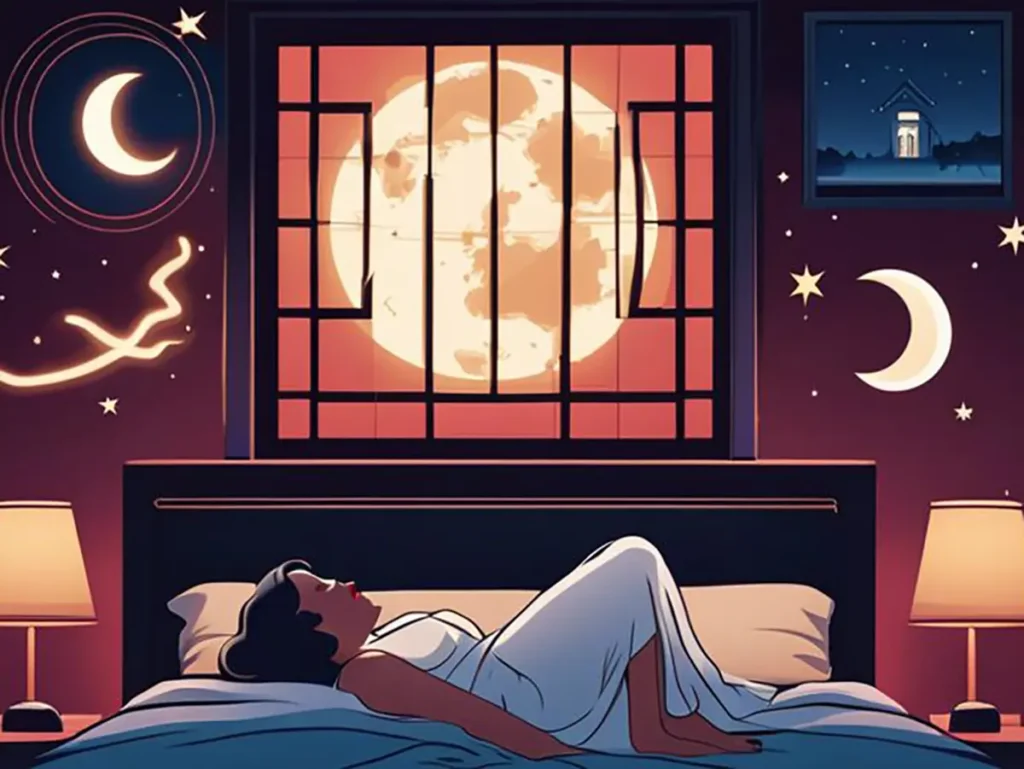Menopause brings about a host of physical and emotional changes for women, and for many, the symptoms can be particularly challenging to manage at night. Hot flushes, night sweats, insomnia, and mood swings are just a few of the common issues that can disrupt a good night’s sleep during menopause. Understanding why these symptoms worsen at night, and learning strategies to alleviate them can significantly affect the quality of sleep and women’s overall well-being in this stage of life. In this blog post, we research the reasons behind why menopause symptoms can be worse at night and explore practical ways to cope.
Key Takeaways:
- Menopause symptoms can be worse at night due to hormonal fluctuations affecting body temperature regulation.
- Hot flushes and night sweats are common menopausal symptoms that can disrupt sleep and result in nighttime discomfort.
- Managing stress levels and creating a calm sleeping environment can help alleviate nighttime menopausal symptoms.
- Avoiding caffeine, alcohol, and spicy foods before bedtime can also help reduce the severity of menopause symptoms at night.
- Consulting a healthcare professional for personalized advice on managing menopausal symptoms at night is recommended for women experiencing severe discomfort.
The Biology of Menopause
Some women experience a variety of symptoms during menopause, marking the end of their reproductive years. These symptoms can range from hot flushes and mood swings to changes in sleep patterns and hormonal fluctuations. Understanding the biology behind menopause can explain why these symptoms occur and how they can impact a woman’s overall well-being.
Hormonal Changes During Menopause
Biology plays a significant role in menopause, particularly in the hormonal changes that take place. During menopause, a woman’s estrogen levels drop significantly as her ovaries stop releasing eggs. This decline in estrogen can lead to a range of symptoms, including hot flushes, night sweats, and vaginal dryness. Additionally, fluctuations in hormone levels can contribute to mood swings and irritability that some women experience during this time.
Impact on Sleep Patterns
Menopause can also profoundly impact a woman’s sleep patterns. Changes in hormone levels, particularly the decrease in estrogen, can lead to disrupted sleep, difficulty falling asleep, and difficulty staying asleep through the night. Additionally, night sweats and hot flushes can cause frequent awakenings, further disrupting the quality of sleep experienced by menopausal women.
Menopause-related sleep disturbances can have far-reaching effects on a woman’s overall health and well-being. Poor sleep quality can contribute to fatigue, irritability, and difficulty concentrating during the day. It is imperative for women experiencing sleep disruptions during menopause to seek support and explore strategies to improve their sleep hygiene to promote better rest and overall health.
Menopause Symptoms Exacerbated at Night
Assuming you are a woman going through menopause, you may have noticed that your symptoms tend to worsen during the night. Menopause, a natural phase in a woman’s life when menstrual periods stop, can bring about a range of physical and emotional changes. While symptoms vary from woman to woman, many experience an exacerbation of symptoms at night, disrupting their sleep and overall quality of life.
Hot Flushes and Night Sweats
One common menopausal symptom that tends to be exacerbated at night is hot flushes and night sweats. These sudden feelings of intense heat, often accompanied by sweating, can strike at any time during the day but are particularly troublesome at night. Hormonal fluctuations during menopause can trigger these episodes, leading to disrupted sleep and increased fatigue.
With the decrease in estrogen production during menopause, the body’s internal temperature regulation can become dysregulated, making women more prone to hot flushes and night sweats. These symptoms can be disruptive not only to sleep but also to overall comfort and quality of life. Managing hot flushes and night sweats effectively can significantly improve a woman’s sleep and daily functioning.
Sleep Disturbances and Insomnia
One of the most challenging aspects of menopause for many women is the onset of sleep disturbances and insomnia. The hormonal changes during menopause can disrupt the body’s natural sleep-wake cycle, making it harder to fall asleep and stay asleep throughout the night. This can lead to feelings of exhaustion, irritability, and difficulty concentrating during the day.
Women experiencing menopause-related sleep disturbances must prioritize good sleep hygiene practices, such as creating a relaxing bedtime routine, maintaining a cool and dark sleep environment, and avoiding stimulants close to bedtime. Seeking support from healthcare providers and exploring potential treatment options, such as hormone therapy or natural remedies, can also help alleviate these troublesome symptoms and improve overall sleep quality.
Managing Nighttime Menopause Symptoms
All women experience menopause differently, but for many, symptoms can be particularly troublesome at night. Managing nighttime menopause symptoms is crucial for overall well-being and quality of life. By implementing strategies to improve sleep and alleviate discomfort, women can navigate this phase more easily and comfortably.
Lifestyle Adjustments for Better Sleep
Sleep is imperative for overall health, and disruptions during menopause can exacerbate symptoms and impact daily life. To improve sleep quality, establish a relaxing bedtime routine that promotes restful sleep. Avoid stimulants like caffeine and alcohol close to bedtime, and create a relaxed, dark, and quiet sleep environment. Incorporating relaxation techniques such as deep breathing exercises or meditation can also help promote better sleep during menopause.
Medical Interventions and Therapies
Lifestyle adjustments can help manage nighttime menopause symptoms, but in some cases, medical interventions and therapies may be necessary. Hormone replacement therapy (HRT) or other medications prescribed by healthcare professionals can help alleviate severe symptoms and improve sleep quality. Consulting with a healthcare provider to explore options tailored to individual needs is imperative in finding the most effective treatment plan.
With advancements in medical research, there are various options available to address nighttime menopause symptoms. From prescription medications to natural remedies, women can work with their healthcare providers to determine the best action for managing symptoms and improving overall sleep quality.
To wrap up
Hence, menopause symptoms can indeed be worse at night for many women. The disruption in sleep patterns and hormonal fluctuations during this stage of life can lead to increased intensity of symptoms such as hot flushes, night sweats, and mood swings during nighttime hours. It is essential for women experiencing these symptoms to seek support from healthcare professionals and explore treatment options to improve their quality of life during this transitional phase.
FAQ
Q: Are menopause symptoms worse at night?
A: Yes, menopause symptoms can often be worse at night due to hormonal fluctuations that can disrupt sleep patterns and cause increased discomfort.
Q: What are familiar menopause symptoms that can worsen at night?
A: Common menopause symptoms that can worsen at night include hot flushes, night sweats, insomnia, mood swings, and anxiety.
Q: How can hot flushes and night sweats disrupt sleep during menopause?
A: Hot flushes and night sweats can lead to sudden feelings of intense heat, sweating, and discomfort, which can wake women up multiple times during the night, leading to fragmented sleep and fatigue.
Q: What can women do to manage menopause symptoms that are worse at night?
A: Women can try various strategies such as keeping the bedroom cool, using breathable bedding, practising relaxation techniques, staying hydrated, avoiding caffeine and alcohol before bed, and talking to a healthcare provider about possible treatment options.
Q: When should women seek medical help for menopause symptoms affecting their sleep?
A: Women should seek medical help if their menopause symptoms are significantly impacting their quality of life, daily functioning, or mental health. A healthcare provider can offer personalized advice and treatment options to improve sleep and well-being during menopause.






